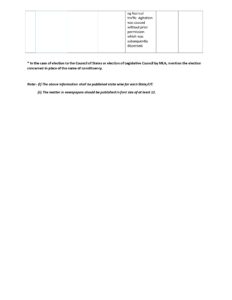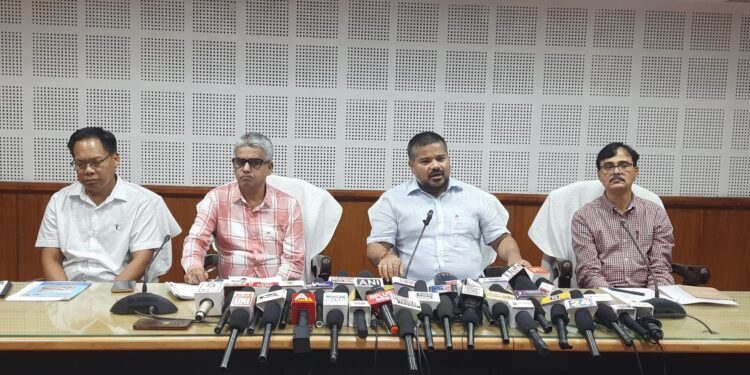Agartala: May 20: Following the collapse of the railway line in the Jatinga-Lampur area of the Lumding-Badarpur section due to heavy rains on April 26, the import of essential commodities into the state faced disruptions. In response, the Indian Oil Corporation Limited (IOCL) authorities resorted to road transportation, using tanker trucks to import petrol and diesel. Additionally, food grains and other essential items were also brought in via road.
To mitigate any artificial crisis and meet the state’s minimum demand amidst limited stock, the state government implemented a rationing system for petrol and diesel sales starting May 1. Minister Sushanta Choudhury announced this measure during a press conference at the Secretariat, expressing gratitude to the people of the state for their cooperation. The police administration and journalists also received acknowledgment for their assistance during this challenging period.
Efforts to normalize the situation included direct intervention by the Chief Minister, who urged the Union Railway Minister to prioritize restoring railway communication. As a result, the railway authorities diligently repaired the affected line, resuming rail traffic on May 11. The transportation of essential commodities, including petrol and diesel, has now recommenced via rail.
The state currently maintains sufficient stocks of petrol and diesel relative to demand. Despite disruptions in food grain imports for public distribution due to rail service interruptions, the public distribution system remains unaffected. The Food Corporation of India (FCI) has imported approximately 9114 metric tonnes of rice through 147 rail wagons since the rail traffic resumed. An additional 21 rail wagons carrying rice are expected to arrive by May 20, ensuring a 90-day stock of rice for public distribution by May 31.
As of May 20, the state holds 50,078 metric tonnes of rice (equivalent to a 70-day stock), along with 22 days’ worth of masoor dal (434 metric tonnes), 45 days’ worth of salt (2456 metric tonnes), 28 days’ worth of sugar (776 metric tonnes), and 74 days’ worth of wheat (7748 metric tonnes).
While prices for essential commodities remain normal, potato prices have slightly increased due to market trends. The state continues to monitor stock levels and prices to ensure stability.
Railway Line Repair Restores Essential Commodity Transportation in State
0
0
SHARES
0
VIEWS
Please login to join discussion



Stay Connected test
- Trending
- Comments
- Latest
Only BJP can ensure real development for tribals in TTAADC: CM
February 23, 2026
Tripura Board of Secondary Education to Review Evaluation Pay
February 23, 2026
Tripura Student Rescued After 3-Day Torture
February 23, 2026





































